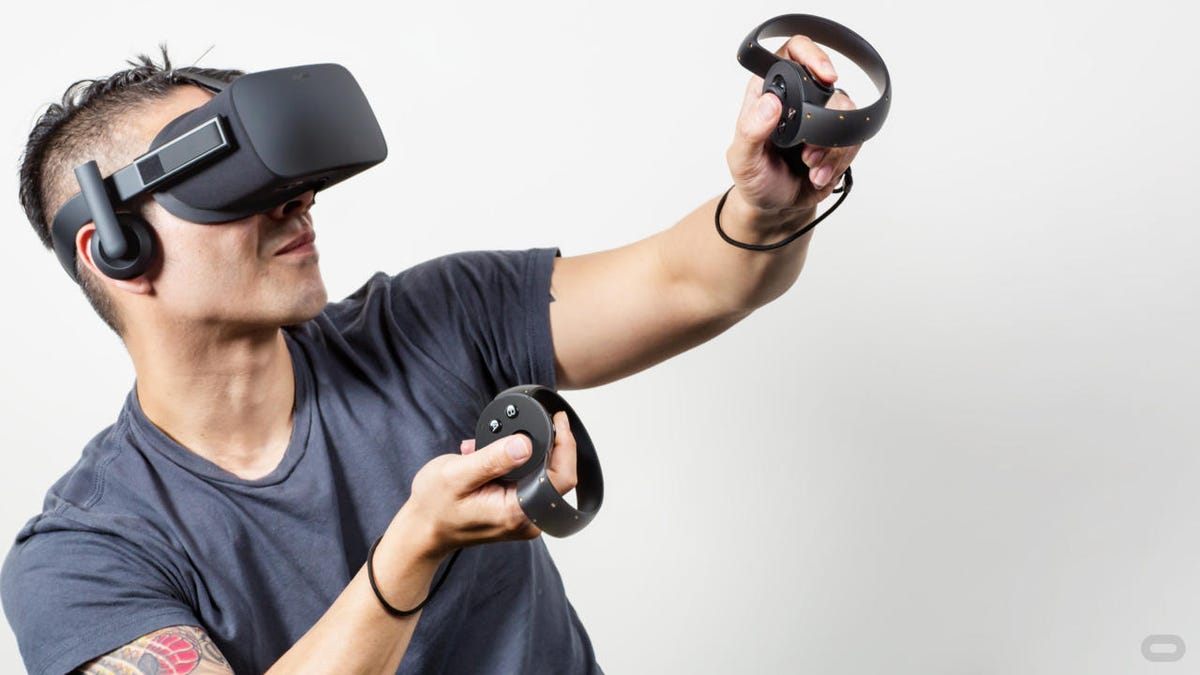Oculus' mini-Pixar teases next VR film experience: You play a (bit) part
Oculus Story Studio, founded by vets of Disney's animation giant, hints its next project will experiment with letting you touch the story.

After two years figuring out how to unfold a story in VR, Max Planck may be ready to give you a role in the action.
Planck is co-founder and technical director of Oculus Story Studio, the in-house creative team crafting computer-generated short films for Facebook's VR headset maker, Oculus. A 10-year veteran of Disney's Pixar computer-animation powerhouse, Planck and his team have created three shorts -- "Lost," "Henry" and "Dear Angelica" -- to test whether their 2D know-how translates to virtual reality.
Their unannounced fourth project may be the first that lets the viewer join in the telling of the tale, Planck hinted in an interview this month.
Oculus Story Studio is just the latest player looking to ride the wave of VR, one of the year's buzziest technologies. The format has existed for decades, but big investments by the likes of Facebook, Samsung and HTC have spurred an explosion in sophisticated hardware available to consumers. Content makers like Oculus Story Studios are trying to figure out how to translate their skills to a medium that upends many filmmaking norms.
With its first short, Oculus Story Studio wondered if it could even tell a story in virtual reality, Planck said. The piece it created, "Lost," plunks a passive viewer in the middle of the dark forest and unravels the mystery of a puppy-like robot that pops out of a grove of bushes.
Max Planck is applying his Pixar experience to short films for VR.
For its second project, the studio sought to find out whether VR can make someone laugh. In creating "Henry," a nine-minute piece about a cute porcupine whose spiky exterior threatens to make his birthday party a lonely affair, "we found we can make someone feel," Planck said.
"Dear Angelica" was Oculus Story Studio's experiment with putting viewers inside somebody's imagination. To do that, the company developed an illustration tool called Quill, which essentially lets an artist paint brushstrokes in thin air. Depicting a daughter's dreamlike memories of her departed mother, "Dear Angelica" also addresses more complex emotions, like grief and sorrow, than the family-focused "Lost" and "Henry."
So far, letting viewers interact with the world around them is a facet of VR that Planck and his colleagues have kept at arm's length.
"We started 'Dear Angelica' where you could have your hands in it, where you could have agency," he said. But giving viewers the ability to doodle with Quill distracted them from the plot. "If you're drawing and trying to pay attention to the story being told, that's just too much for your attention."
Putting you into the story
Planck hinted that the studio's yet-to-be-announced next project will integrate Oculus Rift's Touch, a pair of hand controllers that let people reach out, grab things and manipulate their virtual surroundings.
"We believe in Touch. We believe in having a reason for you to be there," Planck said about the studio's fourth film, adding that it is also aiming for "a little bit more in terms of emotional mission."
Oculus Story Studio has acknowledged the viewer's presence in its shorts already. Characters in both "Lost" and "Henry" look directly into the camera. In VR more so than film, that evokes the feeling that, say, an animated hedgehog is looking straight in your eyes, as if to gauge your reaction when he's stunned or seeking commiseration. The robot of "Lost" even says hello to you.
Letting viewers get their hands on the story would begin to nudge Story Studio's short films closer to the realm of gaming -- something filmmakers like Planck have been wary of doing in VR. Still, Planck has learned that exploring VR's artistic frontier means stepping out of a comfort zone.
"Technology inspires art," he said, "and art challenges technology."

